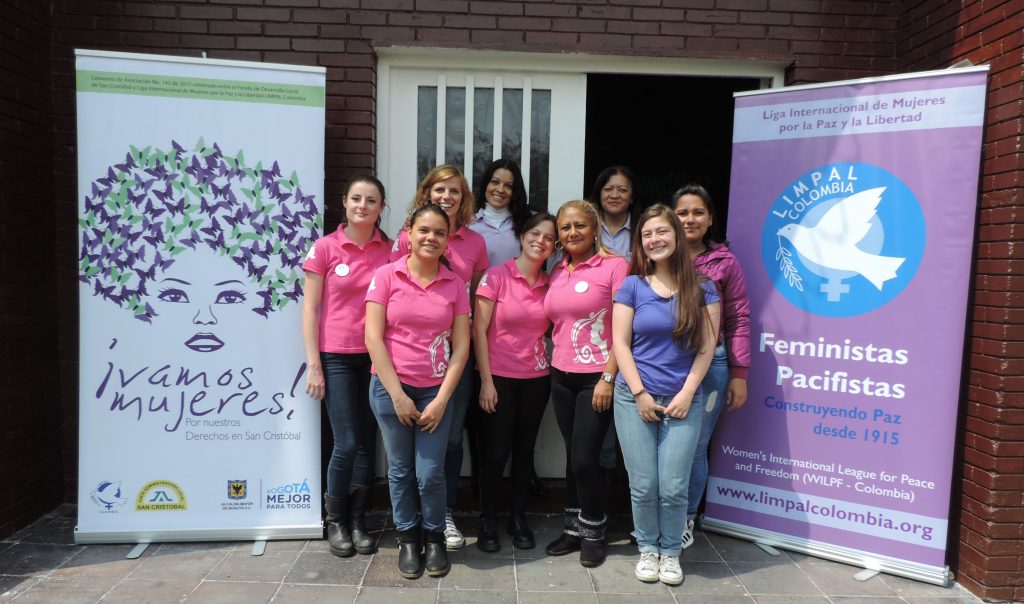
In 2016, WILPF Colombia (LIMPAL in Spanish) launched the project “Go Women! – For our rights in San Cristóbal” in the capital city of Bogota. The project was launched in cooperation with the local town council of the district of San Cristóbal, which is one of the 22 districts in the capital city that has high levels of poverty, violence against women, presence of forced displaced people and ex-combats from previous disarmament, demobilisation and reintegration (DDR) processes. The aim of the project is to raise awareness on gender equality and help women survivors recover from the violence experienced from the on-going armed conflict.
The project includes a series of local activities, including training on women’s rights, public events, film screening and discussions on gender-sensitive topics, group discussions with men and boys on non-violent masculinities, a public fair of women entrepreneurs to promote their products, and other artistic and musical activities that promote women, peace and security.

The most important part of this project is how women are enjoying learning from the workshops on Gender, Development and Public Policy, which helps them to develop political awareness and empowerment for their rights. This activity evolves around three central themes: violence against women, political participation and peacebuilding, and each session begins with a preliminary work on self-confidence, self-help and self-expression through artistic ways.
Although the project brings the participation of the general public (men and women) through the commemoration of events in memory of the victims of gender-based violence, the most innovative part is the School of New Masculinities. This is the first time that WILPF/LIMPAL Colombia includes men and boys in its work in such strategically way. Through a series of debates with local groups of men and boys on how they experience their roles of masculinity and manhood, these activities generate a deep reflection on the need to commit to personal and collective transformation towards gender equality and the elimination of gender-based violence.
Through actions at local and national levels, WILPF/LIMPAL Colombia is contributing to the work of women’s empowerment for political participation in peacebuilding in three regions of Colombia: Bogotá, Bolivar and Meta, bringing men and boys, women and girls into dialogue for sustainable peace with a gender perspective.




